- Many CHROs are unprepared for the increasing demands and complexity of the role. If CHROs don’t prioritize their own development to meet expectations and support their organization, they risk falling behind.
- However, it is often difficult for CHROs to find time in their busy schedules, overcome feelings of vulnerability, and/or adopt a dynamic learning mindset. These barriers often prevent CHROs from prioritizing their own leadership development.
Need Extra Help?
Speak With An Analyst.
- Get on-demand project support
- Get advice, coaching, and insight at key project milestones
- Go through a Guided Implementation to help you get through your project

Our Advice
Critical Insight
- In an environment of constant disruption, HR leaders require key CHRO competencies to support their organizations.
- A planful approach is required to keep personal leadership development off the backburner and help the organization navigate change and succeed.
Impact and Result
- Adopt a planful approach to creating a professional development plan to overcome common barriers. Scheduling time for development, aligning with organizational strategy, and owning personal growth are key to prioritizing and following through on your development.
- Build a customized HR executive training plan to focus your development on key competencies that will support your success and maximize impact on your organization.
Succeed as a CHRO With a Leadership Development Program
Take ownership of your development to lead your organization into tomorrow.
Executive Summary
McLean & Company Insight
In an environment of constant disruption, CHROs require key competencies to support their organizations. A planful approach is required to keep personal development off the backburner and help the organization navigate change and succeed.
Situation
- Industry disruption, organizational complexity, technological changes, and external risks are continuing to change the world of work and, as a result, the role of the CHRO.
- CHROs are being met with increased expectations and are playing a larger strategic role to help their organizations successfully navigate this ever-changing environment.
Complication
- Many CHROs are unprepared for the increasing demands and complexity of the role. CHROs who don’t prioritize their own development to meet expectations and support their organization risk falling behind.
- However, it is often difficult for CHROs to find time, overcome feelings of vulnerability, and/or adopt a dynamic learning mindset. These barriers often prevent CHROs from prioritizing their own development.
Solution
- Adopt a planful approach to creating a development plan to overcome common barriers. Scheduling time for development, aligning with organizational strategy, and owning personal growth are key to prioritizing and following through on your development.
- Build a customized plan to focus CHRO development on key competencies that will support personal success and maximize impact on the organization.
In an increasingly disruptive world, the nature of work is changing rapidly
Industry disruption
Seventy-three percent of executives predict significant industry disruption in the next three years, which will further transform skills needed in the future (Mercer, 2019).
Organizational complexity
The yearly number of mergers and acquisitions worldwide has nearly doubled since 2002, resulting in increasingly complex organizations (IMAA, 2020).
Technological changes
The changing division of work between humans, machines, and algorithms will displace 75 million current jobs while creating 133 million new jobs (World Economic Forum, 2018).
External risks
The COVID-19 pandemic has had severe, negative impacts on the global economy while simultaneously accelerating digitalization, resulting in vast amounts of change and uncertainty for organizations.
These changes are impacting the role of the CHRO
CHROs are expected to play a much larger role in determining strategic direction and partnering with the organization than ever before. What the CHRO needs to do is constantly changing so it is more important than ever for CHROs to be proactive rather than reactive about their own development, or risk falling behind.

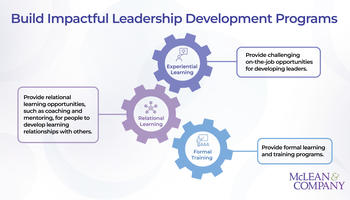 Build Impactful Leadership Development Programs
Build Impactful Leadership Development Programs
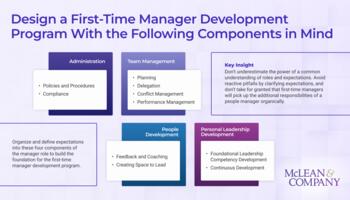 Enable the Transition to Leadership for First-Time Managers
Enable the Transition to Leadership for First-Time Managers
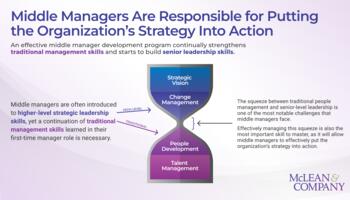 Develop the Leadership Skills of Your Middle Managers
Develop the Leadership Skills of Your Middle Managers
 Succeed as a CHRO With a Leadership Development Program
Succeed as a CHRO With a Leadership Development Program
 Prepare People Leaders for the Hybrid Work Environment
Prepare People Leaders for the Hybrid Work Environment
 Train Managers to Master Difficult Conversations
Train Managers to Master Difficult Conversations
 Train Managers in the Art of Decision Making
Train Managers in the Art of Decision Making
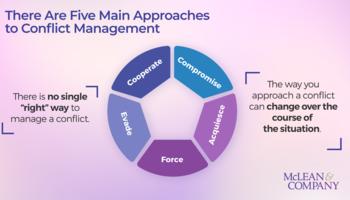 Train Managers to Effectively Navigate Conflict
Train Managers to Effectively Navigate Conflict
 Train Managers on the Art of Influence
Train Managers on the Art of Influence
 Equip Managers to Coach Employees for High Performance and Development
Equip Managers to Coach Employees for High Performance and Development
 Emotional Intelligence in Leadership
Emotional Intelligence in Leadership
 Optimize Generative AI as an Emerging Leader
Optimize Generative AI as an Emerging Leader
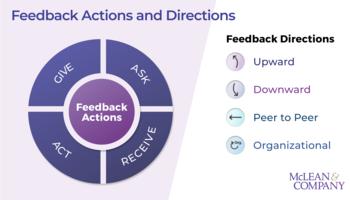 Foster Effective Feedback in the Workplace
Foster Effective Feedback in the Workplace
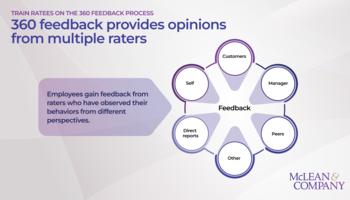 Train Raters on the 360 Feedback Process
Train Raters on the 360 Feedback Process
 Expand Your Digital Awareness as an Emerging Leader
Expand Your Digital Awareness as an Emerging Leader
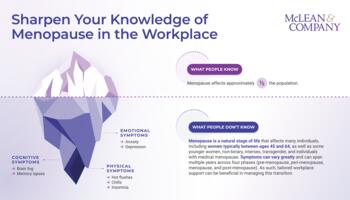 Be an Ally for Menopausal Staff
Be an Ally for Menopausal Staff
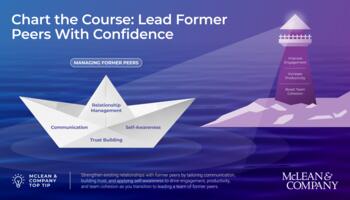 Strengthen Relationship Dynamics as You Transition From Peer to Leader
Strengthen Relationship Dynamics as You Transition From Peer to Leader
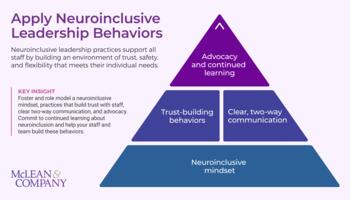 Support First-Time Leaders to Practice Neuroinclusive Leadership
Support First-Time Leaders to Practice Neuroinclusive Leadership